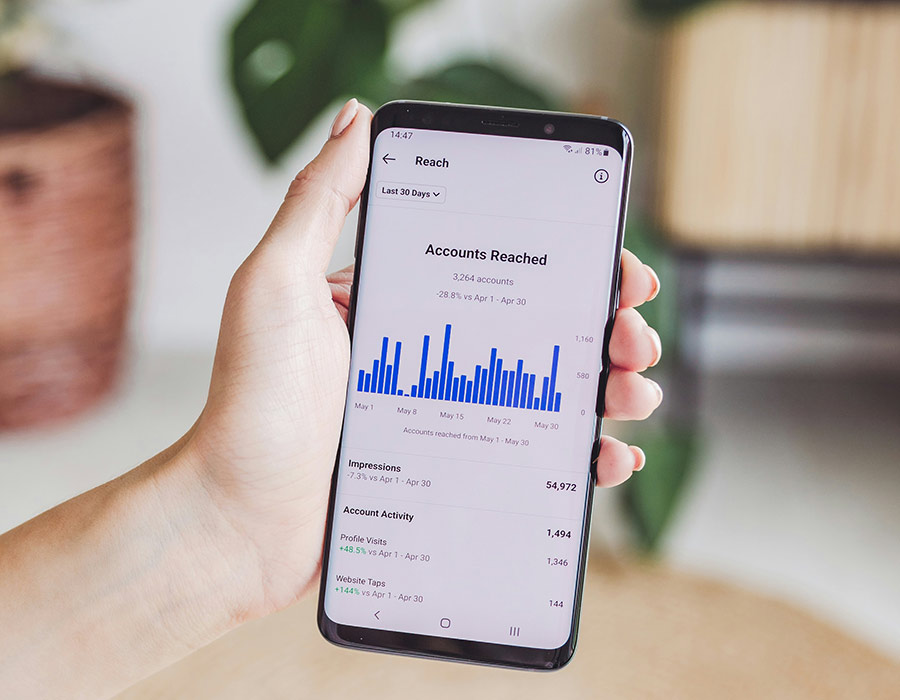Which Social Media Should I Use for My Business?
A social media presence is no longer optional for businesses—it’s essential.
With a myriad of platforms available, each with its unique features and user base, selecting the right social media for your business can be a daunting task.
This article will guide you through the most popular social media platforms, helping you determine which one(s) align best with your business goals and target audience.
Understanding Your Business Goals and Target Audience

Before diving into the specifics of each social media platform, it’s crucial to define your business goals and understand your target audience.
Are you aiming to increase brand awareness, drive website traffic, generate leads, or provide customer service?
Similarly, who are your ideal customers? What are their demographics, interests, and online behaviors? Having clear answers to these questions will help you choose the most suitable social media platforms.
Choosing Social Media Platforms for Your Business
1. Facebook: The Universal Platform
With roughly 3 billion monthly active users, Facebook is the largest social media platform globally. Its vast user base spans across various demographics, making it a versatile tool for businesses of all sizes and industries.
Key Facebook features for businesses:
- Business Pages: Create a dedicated page for your business to share updates, promote products, and engage with followers.
- Advertising: Facebook’s robust advertising platform allows for highly targeted campaigns based on user behavior, interests, and demographics. It will take some time to optimize any advertising campaign on Facebook, but once optimized it can be a very cost-effective way to gain new customers or create brand awareness.
- Groups: Engage with niche communities and create your own groups to foster customer loyalty and interaction.
Facebook is particularly effective for B2C businesses looking to build brand loyalty and engage with a broad audience.
2. Instagram: Visual Storytelling
Instagram, owned by Facebook, is a visually-driven platform with over 2 billion monthly active users.
It’s an ideal social media platform for businesses that can leverage high-quality visuals and storytelling.
Key Instagram features for businesses:
- Posts and Stories: Share images, videos, and ephemeral content to engage followers.
- Reels: Create longer videos or short, engaging clips to showcase products, tutorials, or behind-the-scenes content.
- Shopping: Utilize Instagram Shopping to tag products in posts, making it easy for users to purchase directly from the app.
Instagram is particularly beneficial for businesses in the fashion, beauty, food, travel, and lifestyle sectors.
Also Read: 5 Ways You Can Use Instagram to Promote Your Startup
3. LinkedIn: Professional Networking
LinkedIn is the go-to platform for B2B marketing and professional networking, boasting over 1 billion users in over 200 countries.
It’s an ideal platform for businesses that aim to connect with other businesses, industry professionals, and thought leaders.
Key LinkedIn features for businesses:
- Company Pages: Create a page for your business to share updates, articles, and job postings.
- LinkedIn Ads: Use targeted ads to reach decision-makers and professionals within specific industries.
- Content Sharing: Publish articles and posts to establish your business as a thought leader in your industry.
LinkedIn is especially effective for companies in the B2B sector, professional services, and recruitment.
4. X (Formerly Twitter): Real-Time Engagement
X, with over 550 million monthly users, is a platform for real-time communication and engagement. Although the transition from Twitter to X had its issues, it can still be a powerful social media platform for your business.
It’s well-suited for businesses that thrive on quick updates, customer service, and trending topics.
Key features for businesses:
- Tweets: Share short updates, news, and links to engage with followers.
- Hashtags: Use relevant hashtags to join and initiate conversations.
- Ads: Promote tweets, accounts, and trends to reach a wider audience.
X is particularly useful for media companies, tech businesses, and any brand looking to provide timely updates and customer support.
Tip: if you think X is a good social media for your business, also look into Threads.
5. Pinterest: Visual Discovery
Pinterest, a visual discovery and bookmarking platform, has over 500 million monthly active users.
It’s a perfect social media platform for businesses that can create visually appealing content, especially those in the DIY, home decor, fashion, and food industries.
Key Pinterest features for businesses:
- Pins and Boards: Share and organize images and links related to your products or services.
- Pinterest Ads: Promote pins to increase visibility and drive traffic to your website.
- Rich Pins: Use Rich Pins to provide additional information directly on the pin, enhancing user engagement.
Pinterest excels at driving website traffic and increasing sales for businesses with a strong visual component.
Tip: if you think Pinterest is the best social media for your business, also look into Flipboard.
6. TikTok: Short-Form Video Content

TikTok, with its explosive growth and over 1.5 billion monthly active users, is a platform for creating and sharing short-form videos.
It’s ideal for businesses that can produce creative, engaging, and often light-hearted content.
Key TikTok features for business:
- Short Videos: Create up to 60-second videos that can go viral and reach a large audience.
- Trends and Challenges: Participate in trending challenges and use popular music to increase visibility.
- TikTok Ads: Utilize various ad formats, including in-feed ads and branded hashtag challenges, to reach a wider audience.
TikTok is particularly beneficial for brands targeting younger demographics, especially those in the entertainment, fashion, and beauty industries. But, TikTok is still growing rapidly, has long moved past the dancing videos, and is becoming useful for a broader range of businesses.
7. YouTube: Long-Form Video Content
YouTube, the leading video-sharing platform with over 2.7 billion monthly active users, is ideal for businesses that can produce high-quality, long-form video content.
Key YouTube features for businesses:
- Channel: Create a dedicated channel for your business to upload and organize videos.
- YouTube Ads: Use targeted ads to reach specific demographics and interests.
- SEO: Optimize video titles, descriptions, and tags to improve search visibility.
- YouTube Shorts: Leverage this feature for short-form video content (up to 60 seconds), similar to TikTok and Instagram Reels. YouTube Shorts can help you reach a younger audience and provide quick, engaging content to complement your long-form videos.
YouTube is especially effective for businesses in education, entertainment, and tech that can create tutorials, product reviews, and informative content.
Also Read: How to Use YouTube for Business – A Practical Guide
Conclusion – Social Media for Business

Selecting the right social media platforms for your business involves understanding your goals, knowing your audience, and leveraging the strengths of each platform.
While it’s tempting to be everywhere, focusing your efforts on the platform(s) that align best with your objectives and audience will yield the best results.
Whether it’s the broad reach of Facebook, the visual appeal of Instagram, the professional network of LinkedIn, the real-time engagement of X, the discovery potential of Pinterest, the creative energy of TikTok, or the informative power of YouTube, there’s a platform (or combination of platforms) that’s right for your business.
